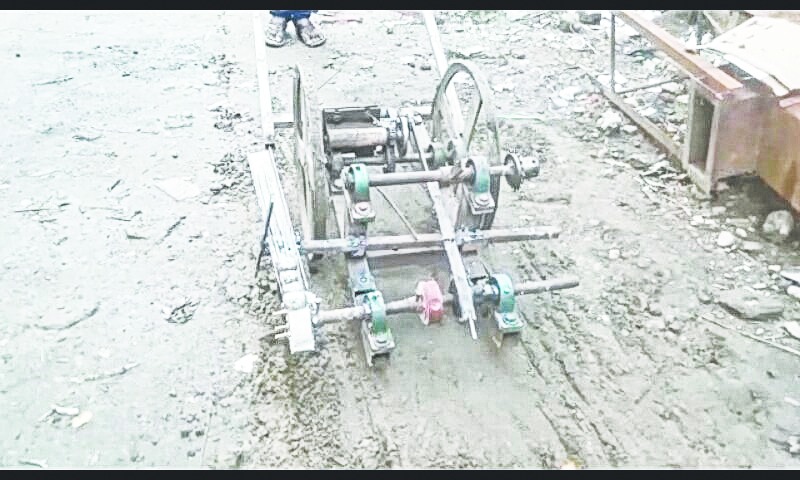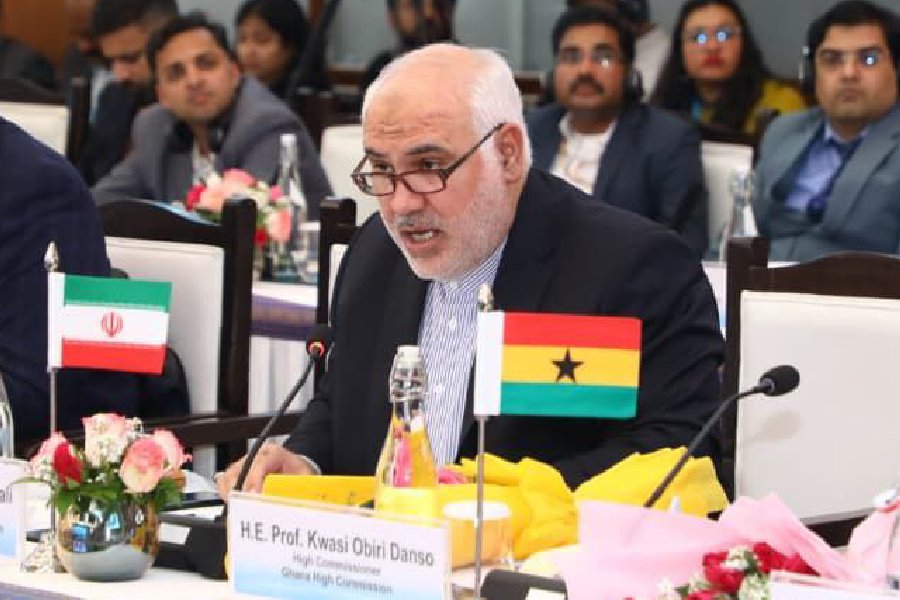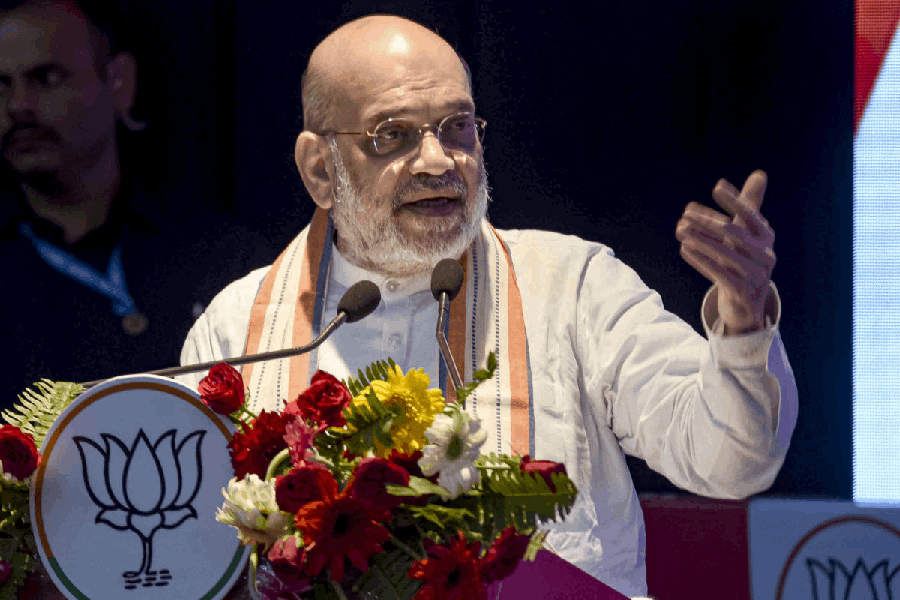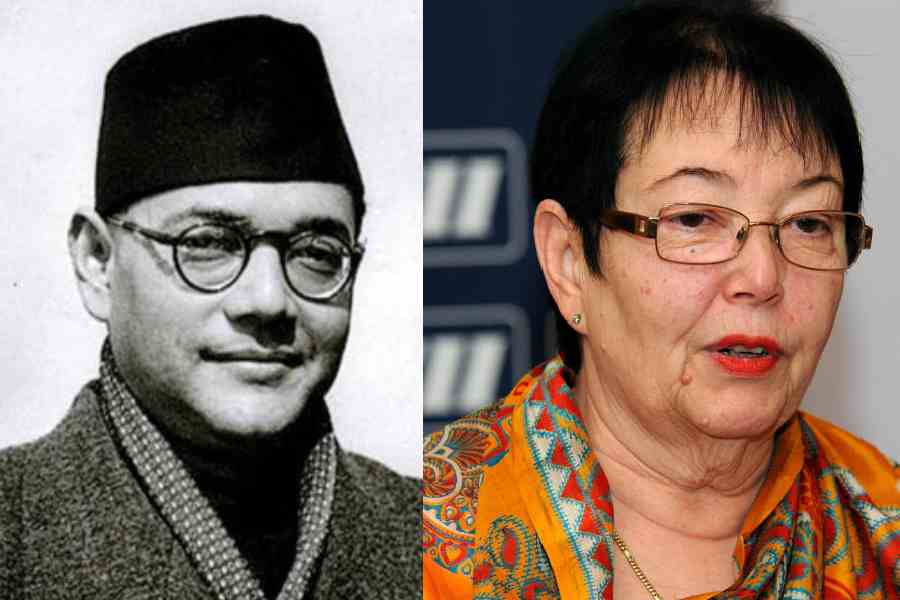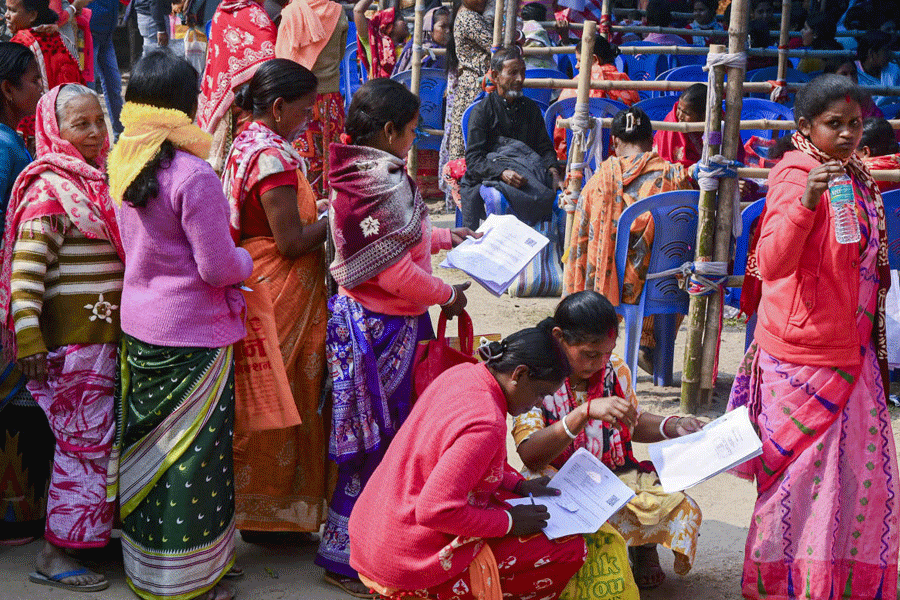
Jorhat, March 17: Ace innovator Uddhab Bharali has come up with a gadget whose simplicity of design and mechanism masks its usefulness in the back-breaking task of transplanting paddy.
Thinking out-of-the-box is Bharali's USP and helps him come up with such innovations.
"My main motive is to bring back educated rural youths back to their roots - agriculture. The youngsters, after completing their education, do not want to dirty their hands working in the fields. This will help grow paddy saplings and transplant them without working for hours," he said.
Bharali has come up with two mechanisms. One uses a rod, spoons and forks to transplant four saplings at a go. The other is one in which seeds are sown in tumblers. Once the saplings grow, the tumbler which acts as a mould is removed. Subsequently, the saplings are placed in a device and dropped at regular intervals in the field.
Later, the field can be irrigated with tubewell water or be rain-fed.
Bharali calls the entire process encapsulated paddy transplanting.
"Since the device does not have a motor, it does not require a battery, fuel or electricity to run. It is simple and cost-effective," he said.
Bharali said he had demonstrated the device in a Technology Education Design fest held in Cuttack last year. He also used the equipment to transplant paddy on an experimental basis to see how it works.
"The feedback has been very good. The Regional Agricultural Research Station, Assam Agricultural University, North Lakhimpur, has said it has achieved as much yield as other methods of cultivation and was faster," he said.
K.K. Sharma of the research station said the device would reduce the drudgery of women involved in transplanting and that the machine would be very useful in transplanting paddy seedling in system of rice intensification. "This system is also called the Madagascar method. Minimum water is required and only one sapling is planted at a greater distance than the usual method. Also, saplings of eight to 12 days are planted and production is increased. Bharali's gadget will aid in this," Sharma added.
"Since it does not use fossil fuels, it is cheap and can be used manually. The machine transplanting was observed to be 1.5 times faster than manual planting but with practice, the speed is likely to increase. The yield of paddy in machine-planted and manually-planted rice is on a par," Sharma said.
He said the device would be launched among farmers in North Lakhimpur on March 21.
Bharali, whose pomegranate de-seeder has gone global, is also busy in philanthropic work of designing artificial arms and devices so that people who lost the use of their arms can feed and clean themselves. "A man who has lost one arm in Jamuguri wants me to make an arm so that he can wear his trousers," Bharali said. He makes these devices for free.
Bharali has opened the UKD Trust through which he gives a monthly pension of Rs 1,200 each per month to six widows, while three physically challenged persons get Rs 2,500 each per month. He also takes care of all the needs of 21 families, including health, education, food and clothing.

